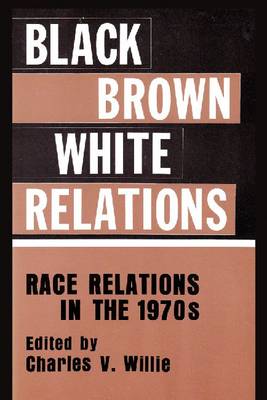The civil-rights revolution of the 1950s and 1960s created new forms of interaction among the races, including a variety of responses such as cooperation, withdrawal, and aggressiveness, and identified adaptations sanctioned and supported by social institutions. This collection presents a forthright analysis of the effects of institutional racism upon all races, explains the variety of adjustment that racial minorities make to their conditions, and indicates the strategies most likely to be successful for minority groups in the 1970s. It avoids the stereotyped analyses so characteristic of commentaries on race relations by suggesting plans of action for legitimately dealing with institutional racism and by emphasizing that, if minority-group populations would like to overcome oppression, they must take responsibility and personally resist it. The focus on race, power, and social change in this book is not so much a new approach as it is a new emphasis. The attitudes and beliefs of people are influenced greatly by the groups and institutions in which they participate. The successful containment of racial prejudice and discrimination in society will result not only from change in the biased attitudes of individuals but also from change in the racist regulations of institutions. This book emphasizes the institutional source and support of racism and prejudice, and suggests ways of modifying social systems. Particular attention is called to the need to use flexible methodology that can change in accordance with the requirements of each situation. The contributors also deal with definitions of the problem of race relations in the 1970s in the United States and with strategies for institutional change.
- ISBN10 087855596X
- ISBN13 9780878555963
- Publish Date 30 January 1977
- Publish Status Out of Print
- Out of Print 24 March 2021
- Publish Country GB
- Publisher Taylor & Francis Inc
- Imprint Transaction Publishers
- Format Paperback
- Pages 235
- Language English
